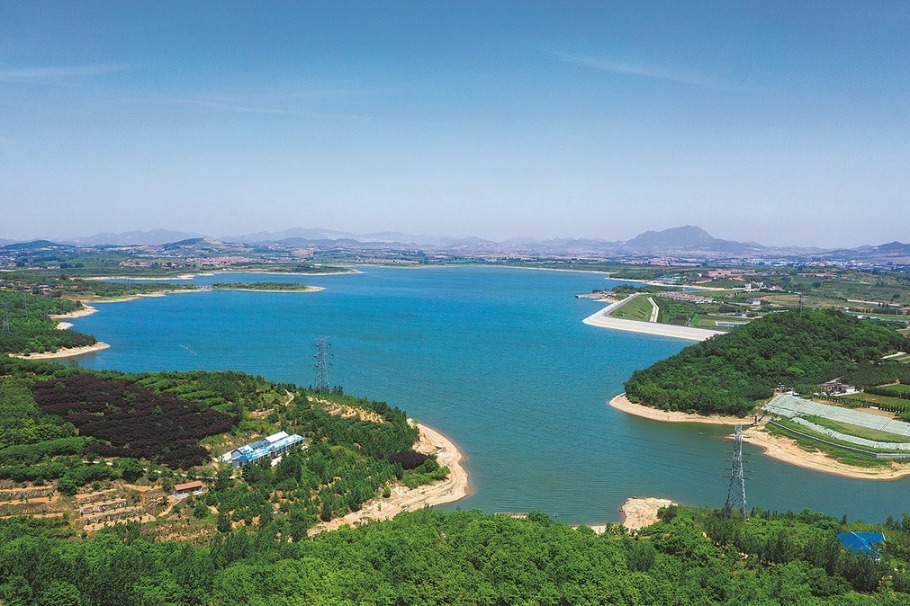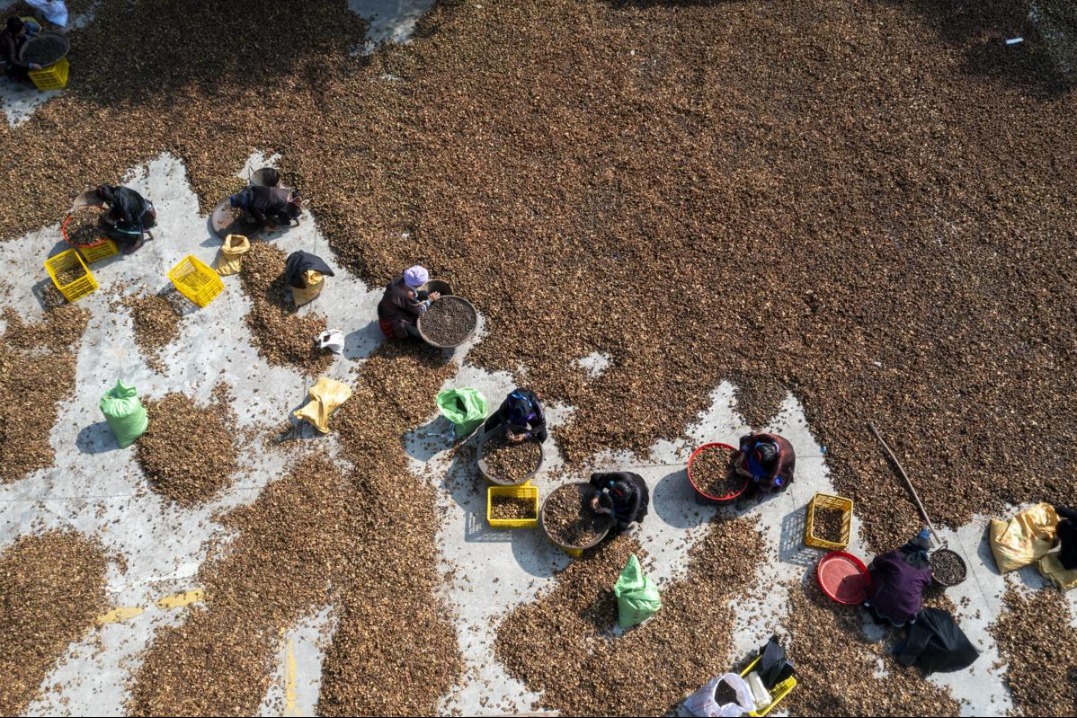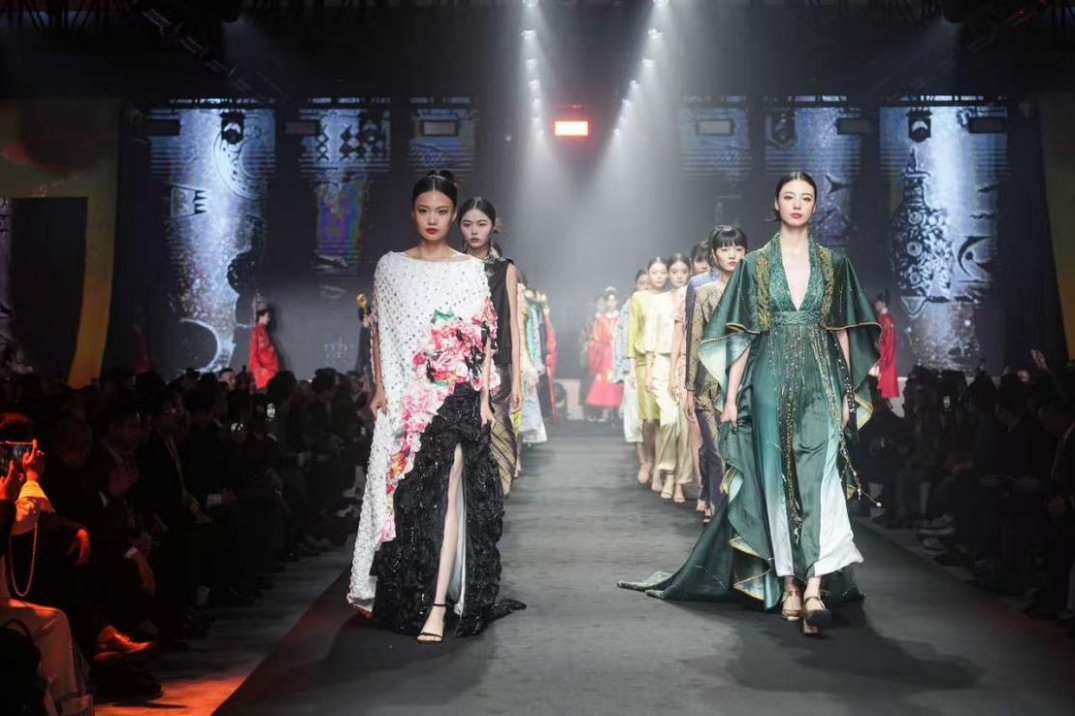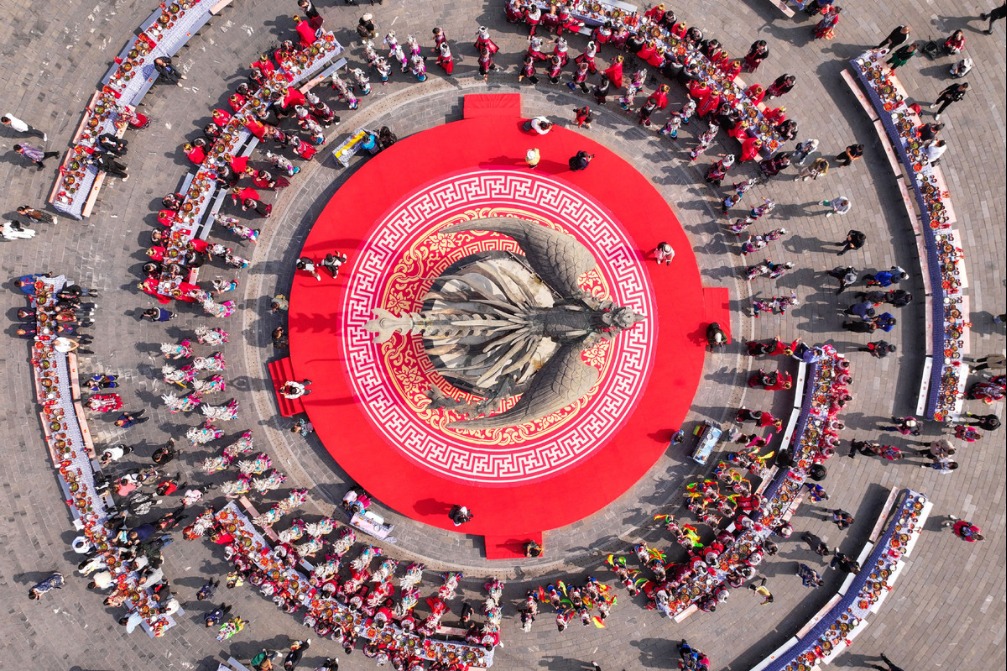China defends climate fund role
Developed nations, not developing ones, must give financial support, envoy says


As a developing nation, China is not obliged to contribute to the post-2025 climate financing target that is expected to be announced during the COP29 United Nations climate conference. Rather, it is the obligation of developed countries to support developing economies in this matter, said China's Climate Envoy Liu Zhenmin.
He also underscored China's consistent solidarity with other developing nations to ensure that developed countries come up with a specific climate finance target for the Global South during the event.
He made the remarks in an interview with China Daily on Saturday on the sidelines of the UN gathering, which has drawn nearly 200 countries. Officially known as the 29th session of the Conference of the Parties to the UN Framework Convention on Climate Change, COP29 kicked off on Nov 11 in Baku, Azerbaijan, and will last until Friday.
The conference's key task is to establish a New Collective Quantified Goal, or post-2025 climate financing commitment for developing nations.
In a deliberate attempt to shift focus and mislead the direction of the negotiations, Liu said some developed countries argued that China should also contribute to the commitment. The argument has no legal support at all, he emphasized.
"As we have consistently maintained — and it's a common ground of the Group of 77 and China — the New Collective Quantified Goal is a target that developed countries are supposed to contribute to. This is also stipulated very clearly in Article 9 of the Paris Agreement," he said.
The article stipulates that developed countries will provide financial resources to assist developing countries as part of their existing obligations under the United Nations Framework Convention on Climate Change. Developing nations are encouraged to provide such support voluntarily, it adds.
"Our position is unequivocal: as a developing nation, we cannot partake in the developed countries' obligations to commit an amount to the NCQG. It's their business," Liu said.
The climate envoy, however, stressed that China will continue to support climate-related tasks in other developing countries via South-South cooperation channels.
While mentioning that climate negotiations are primarily reached between developed and developing countries, he highlighted China's duty as a major world power to safeguard the interests of the Global South.
China has been a major driving force for international cooperation in climate negotiations over the past 30 years. Within this group dynamic, major nations wield significant influence, Liu said.
"As a prominent member of the developing country bloc, China takes pride in its influence and role. But we also understand that we should not just defend China's position, but also that of all developing nations," he said. "More importantly, we should safeguard global cooperation and multilateralism. Our goals are clear, and our expectations are high, despite the considerable challenges we face."
Despite very limited progress so far in negotiations amid significant geopolitical divisions, the climate envoy believes that it's still possible that the conference will conclude with a good outcome.
Following Donald Trump's victory in the United States presidential election, concerns have arisen among some countries — notably the developed ones — regarding the potential for the US to once again withdraw from the Paris Agreement, he stated.
During his previous term as US president, Trump declared in 2017 that the US would withdraw from the pivotal 2015 Paris Agreement. The withdrawal was formally finalized through official procedures in November 2020.
Liu said there is apprehension about whether the US will continue to contribute to the NCQG if it withdraws again. Moreover, disputes also emerged in the first few days of COP29 between Azerbaijan and the European Union on a few bilateral issues. He noted China's efforts to urge the EU, a key player in global climate negotiations, to set aside disputes to focus more intently on the ongoing climate talks.
"In comparison to the anticipated outcomes of the conference, the disputes are minor," Liu said.
He added that the sentiment has been echoed by the EU, and he is glad to see the disputes are gradually being set aside for now.
"We are just halfway through. We are still confident that ... the conference may still possibly yield good results," he said.




































